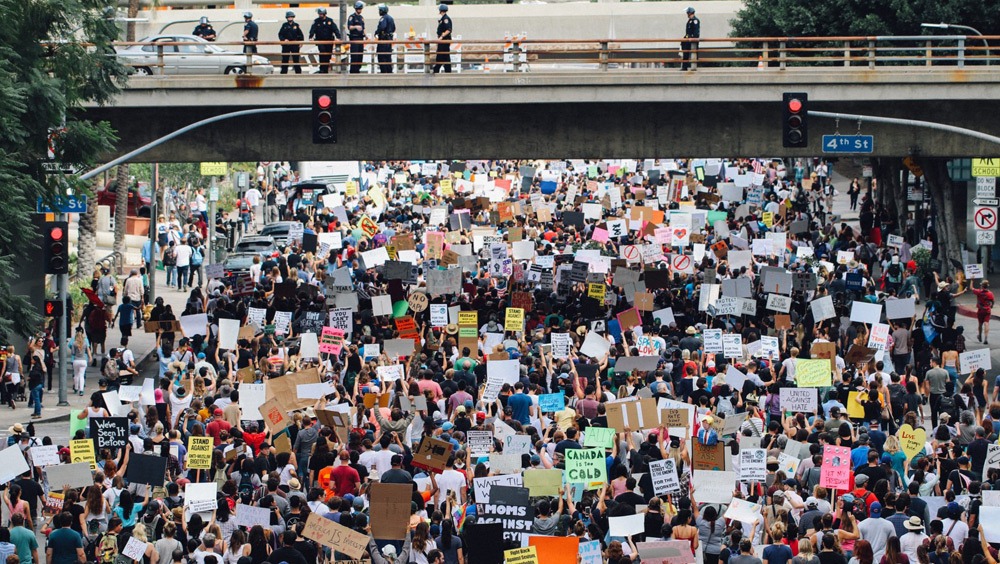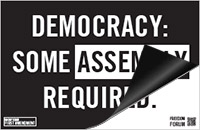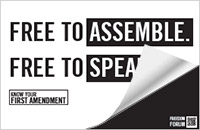The Power of Assembly: Know Your Rights

This First Amendment-friendly toolkit includes links to primers, classes and advisories about how the rights of free speech, assembly and petition work when you step outside — or go online — to protest and be heard.
Freedom Forum Resources
- Freedom of assembly protects the right to peacefully gather with others, without regard to views and opinions, when we take to the streets in protest or in support of a cause.
- How the freedom of assembly has protected protesters with a wide range of viewpoints.
- I’m just at work or in a public place. How protected is what I say?
- Pushing the limits of protected speech: When is “disruptive” too disruptive?
- How it was done: (Video) Shirlene Mercer remembering the modern civil rights-era protests at lunch counter sit-ins in Greensboro, N.C.
- How do we protect the right to assemble at public meetings?
More Resources
- The experts at New York University’s First Amendment Watch produced a detailed guide in June 2020 for citizens when recording police activity. Learn about federal and state laws, how your rights apply in different situations and the legal roots for this still-new tool in holding police accountable.
- The American Civil Liberties Union has a quick, to-the-point general guide to “know your rights at a protest.”
- The online legal services site FindLaw has a guide to each state's unique laws about protesting in public.
- The US. Protest Law Tracker by the International Center for Not-for-Profit Law provides a state-by-state guide to laws limiting protest.
Things To Note
- When protesting, there is no First Amendment-based right to disregard a direct order from a police officer — even if you believe the order is illegal.
- The First Amendment rights of petition and assembly do not give you permission to cross or occupy private property; that’s trespassing. And as to occupying public property: Since the Occupy movement years ago, many jurisdictions updated their policies regarding public squares, parks and such, with many outlawing overnight stays or blocking the space so that others are unable to pass through it.
- Blocking traffic on a public street, whether an individual effort or a mass protest, likely is illegal. Again, there is no First Amendment shield against arrest, though police action may well depend on balancing the taking of protesters into custody versus clearing the thoroughfare.
- The rights of assembly and petition on National Park Service property have certain limitations, with permits required if your group is 25 or more or – pay attention to this — the protest is likely to attract a combined audience of participants and those watching of more than 25. A court decision some years ago cleared the way for individuals to protest with no permit conditions if the person is not blocking others from using the park.
Downloads
Download your own poster (PDF) for the next time you go to a march!


1968 Democratic National Convention Protests: A Look Back
Revisiting one of the most infamous conventions in history.
Rev. Dr. William J. Barber II: Honoring Decades of Courageous Acts of Free Expression
Freedom Forum is honoring Rev. Dr. William J. Barber II at the annual Free Expression…
Related Content
$30,000 Giving Challenge
Support the Freedom Forum’s First Amendment mission by Dec 31st and double your impact.

